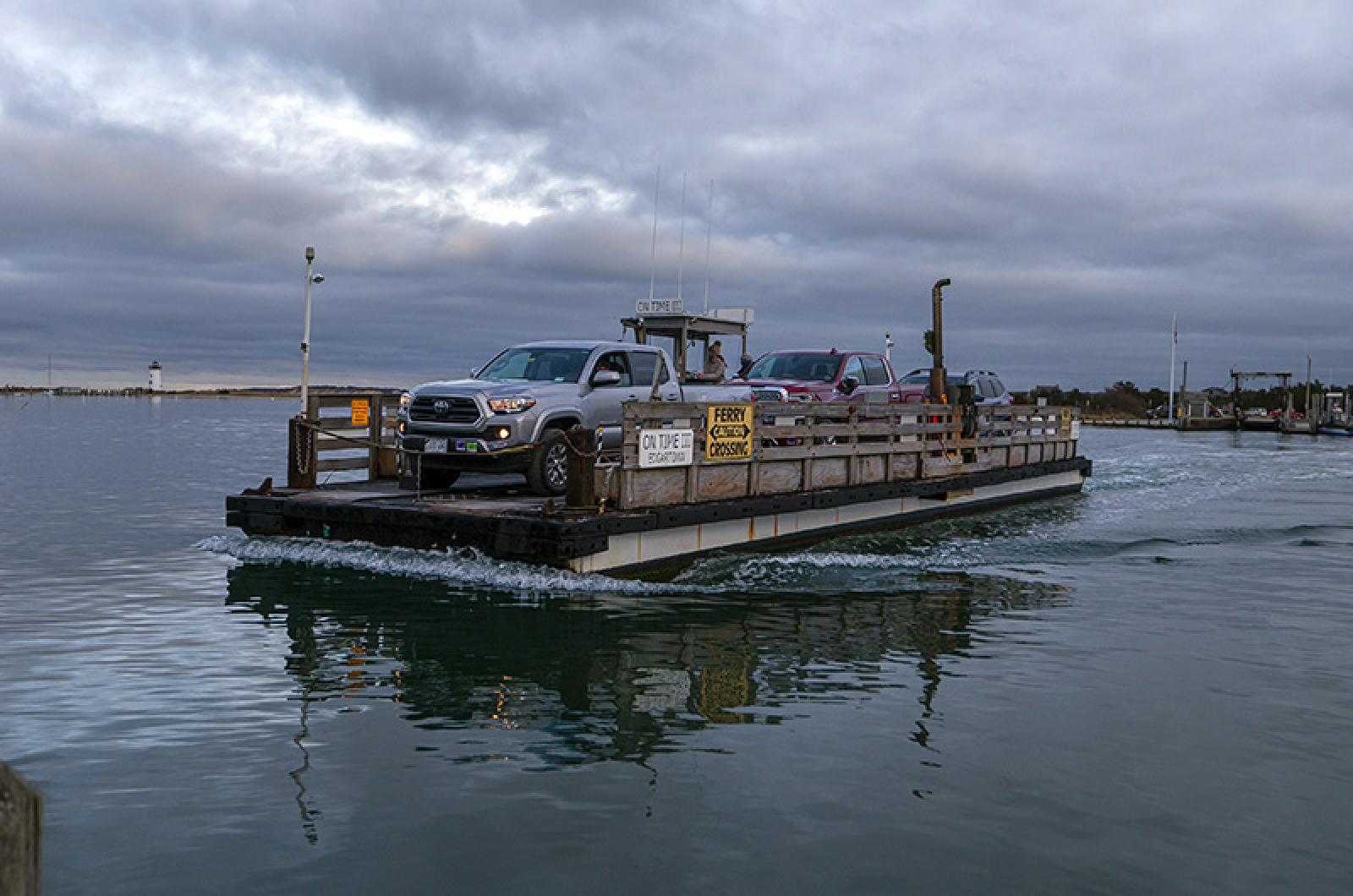If the effects of climate change put Martha’s Vineyard under a magnifying glass, tiny Chappaquiddick is under a microscope.
Speaking to the Gazette by phone last week, Pete Taft, who chairs an environmental committee for the Chappaquiddick Island Association, listed the what-ifs for the small island situated off the eastern end of Edgartown: What if the Chappy ferry can’t run? What if someone needs immediate care and emergency services are unavailable? What happens in the worst of situations?
“For this little island off an Island, what if it’s too windy to land a helicopter?” he said.
Last year, Mr. Taft and his committee set out to identify the most immediate climate dangers facing Chappy, and create a volunteer community emergency response team to coordinate mitigations and solutions.
The committee got a green light from Edgartown town administrator James Hagerty to lay the groundwork for forming the team. When that is finished, Mr. Taft said he hopes Chappaquiddick’s research can be added to climate preparedness work being done across the Vineyard.
Kicking off the effort, the committee hosted a series of Zoom presentations highlighting major climate issues facing the island, which Mr. Taft said turned out to be some of the most popular events on Chappy all year. In July, the group decided to publish the findings from the sessions, printing 400 pamphlets as part of an information campaign to promote climate awareness.
“We put them by the ferry . . . they went 10 every couple days,” Mr. Taft said. Residents made short work of the pamphlet’s first run.
“We didn’t have to do very much to get people’s attention,” he said.
When it came time to create the emergency response team, Mr. Taft said dozens volunteered for the task.
“To get 50 folks raising their hand . . . is a really good thing for Chappy,” he said.
The response team hasn’t been formed yet, but Mr. Taft said it is a top priority for the climate committee.
When the team does materialize, it will address key concerns for Chappy during emergency situations, including in the event that cell towers go down, getting emergency services onto the island and getting people in need off.
“I think if you polled our community and our volunteers they would say it’s a number one concern,” Mr. Taft said. “There is and will be a growing awareness on Chappy of this.”
Mr. Taft said the committee is working on a second edition of the climate change pamphlet, and wants to organize efforts around the emergency response team this summer. An updated pamphlet for 2023 is already on the table.
“We’re a busy little group,” Mr. Taft said.
Alongside efforts to create an emergency response team, he said the environmental committee is looking into issues such as ferry infrastructure during sea level rise, possibly hiring a consultant to help search for state and federal money for improvements.
“That’s a long-term issue . . . but it dovetails with [the emergency response team],” he said.
Committee member Alan Feldman is also looking at tackling the tick problem on Chappy, where Mr. Taft said the threat is even more prominent than on the main Island.
“Chappaquiddick is like the center of the bullseye,” he said.
Mr. Taft said the burden of emergency preparedness falls squarely on the shoulders of Chappaquiddick residents.
“All of us . . . pretty much understand we’re on our own,” he said. “Chappy is this little out of the way island that people don’t pay much attention to.”







Comments (5)
Comments
Comment policy »